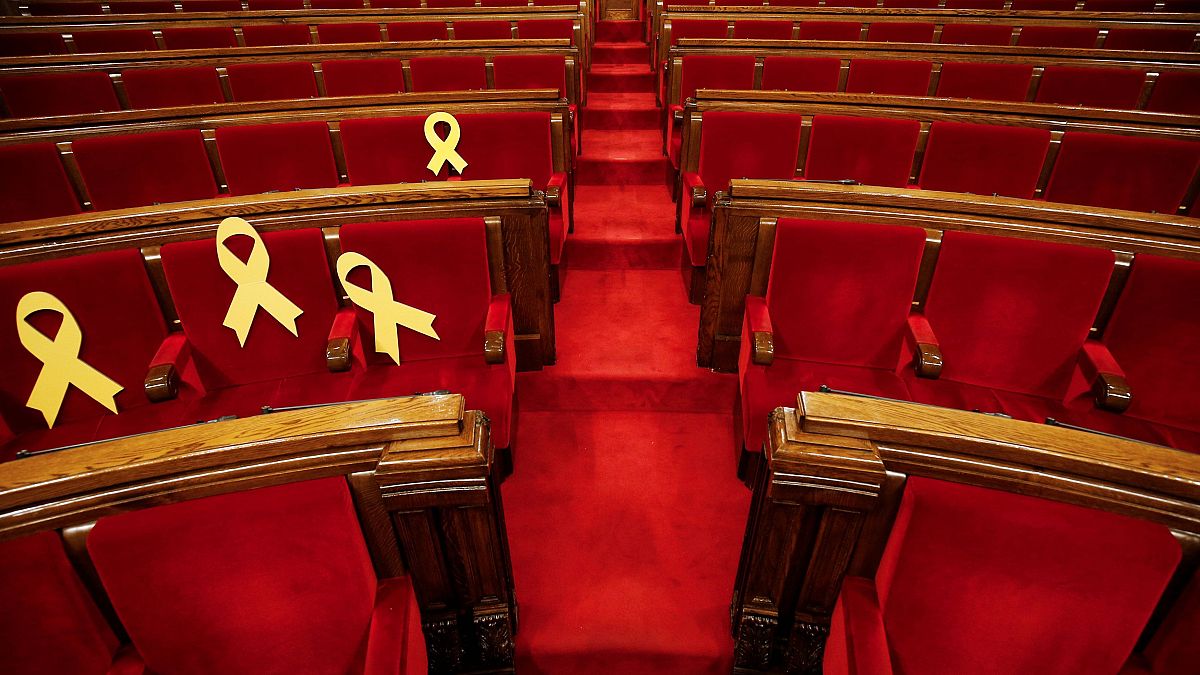After Puigdemont’s arrest, the Spain government must tread carefully to keep European actors on side in the debate over Catalonia’s future, writes the vice president of the Catalan Council of the European Movement.
By Laura Ballarin Cereza
Catalonia is divided. Perhaps the clearest illustration of this large and worrying social fracture was the image of the region’s half-empty parliament during the vote for independence on 27 October. Led by a tiny majority of separatist MPs, the unilateral declaration of independence prompted the Spanish government to activate Article 155 of the Spanish Constitution, allowing it to impose direct rule on Catalonia, dissolve the parliament and call snap elections in December. Here again, the rift was evident, with 47% of the vote going to pro-independence parties.
- You should also read: Catalonia crisis, Europe's wake-up call
Over the last several months, the secessionist block, which holds the majority of seats in Catalonia’s parliament, have struggled to agree among themselves on whom to put forward as a candidate for the next regional president. All three attempts to elect a new leader failed.
Meanwhile, legal proceedings against those responsible for the illegal referendum on 1 October have continued. After Marta Rovira (right hand to the former vice president) failed to appear in court and fled to Switzerland, the Spanish Supreme Court opened new proceedings against 13 Catalan independence leaders on charges of rebellion and embezzlement, including former President Puigdemont and his top aides and allies.
The court order also indicted 25 former officials and pro-independence leaders on charges including misuse of public funds and disobedience, ordering the main group to pay back €2.1 million to cover the cost of last year’s illegal referendum and court costs. It is also worth noting the secessionists repeatedly violated parliament rules, while the Catalan government’s declaration of independence went against the Catalan Statute and Spanish Constitution, and came after several warnings by the Constitutional Court and the judges.
European Arrest Warrants were also reactivated for the seven Catalan leaders who had fled Spain. In spite of Puigdemont trying to avoid his arrest while driving back from Finland (where he had been delivering a speech) to Belgium, he was finally arrested in Germany near the Danish border.
It is now up to the German justice system to deal with this case and to decide according to EU and German laws if it extradites him to Spain or not, along with Belgium and Scotland where other secessionist leaders sought by the Spanish legal apparatus are living.
The reactivation of the European Arrest Warrants forces European actors to have a say in the debate: the judiciary, but also governments, the media and civil society. The Spain government needs to tread carefully to keep them on side. Led by Mariano Rajoy, it must try to avoid repeating the mistakes it made with the so-called referendum in October, which damaged the international image of the country. It should put enough efforts towards traditional state diplomacy to explain that Spain is a full democracy, based on the rule of law and the separation of powers. It should stress too that the detained Catalan politicians are held at the order of the judicial branch and that they will have a free, fair and transparent process.
But not only that. The Spanish government should also invest resources in public diplomacy, which includes a wide range of official efforts to convince targeted sectors of foreign opinion to support or tolerate a government’s strategic objectives. I believe in public diplomacy as a tool to win “hearts and minds.” Efforts to persuade international media to portray official policies favourably to foreign audiences, will be crucial for Spain and Catalonia in the coming months, for example.
Finally, we are unlikely to find a solution if only emotions dictate politics. What is happening in Catalonia is a consequence of the monumental error of violating the laws and the inability of existing policy to solve a fundamental problem caused by an enormous social division. This is a political problem that needs political solutions within the rule of law, probably through a reform of the Constitution. Therefore, to find a way out of this crisis three things are necessary: every politician must abide by the law, the debate must return to politics, and broad agreements to seek the necessary consensus should be established to avoid the social breakdown that is taking place.
Laura Ballarin Cereza, Vice-President of the Catalan Council of the European Movement (CCME) and Advisor at the European Parliament on Foreign Affairs, was born in Barcelona and is now based in Brussels. Twitter: @lauballarin
Opinions expressed in View articles are not those of Euronews.
